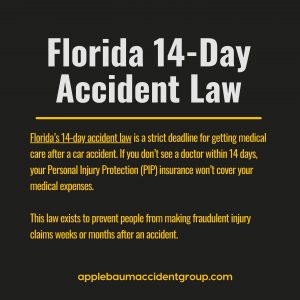In Florida, truck accident settlements are based on injury severity, medical costs, lost income, fault, and insurance limits. Most range from $150K to $750K, but cases involving surgery or permanent injury can exceed $1 million. Settlement timing varies; some take 6 months, others several years.
Being hit by a commercial truck is a terrifying experience. You’re injured, missing work, and unsure what’s fair in a settlement or how long it’ll take.
In this guide, you’ll learn exactly how truck accident settlements are determined in Florida, what influences the final amount, how to avoid lowball offers, and what to expect each step of the way.
Key Factors That Impact Your Payout

When you’re involved in a truck accident in Florida, the settlement amount isn’t chosen at random, it’s built on specific, quantifiable factors that reflect how the accident changed your life. The more serious and life-altering the impact, the higher your compensation is likely to be. Here’s what influences the outcome.
1. Severity of Injuries
This is the most influential factor. Settlements for truck accident cases involving paralysis, traumatic brain injuries, or other permanent disabilities are significantly higher. Why? These catastrophic injuries require long-term care, impact daily living, and often end careers. In contrast, soft-tissue injuries or whiplash, while still compensable, result in lower offers.
2. Medical Costs and Future Care
Every dollar spent on medical treatment, ER visits, surgeries, medications, rehab, is tallied. So is anticipated care:
- Future surgeries
- Physical therapy
- Pain management.
Remember keeping detailed records from providers.
3. Lost Wages and Future Earnings
If you missed work due to your injuries, you’re entitled to recover those wages. But what many people miss is this: if your earning capacity is permanently reduced (e.g., you can no longer drive for Uber, operate machinery, or return to your career), your future lost income is also included in the claim.
4. Pain, Suffering, and Lifestyle Changes
This is where a seasoned attorney truly makes a difference. Non-economic damages like anxiety, disrupted sleep, fear of driving, and loss of independence carry real value, but they require strategic storytelling. Medical documentation, mental health evaluations, and day-in-the-life evidence can help establish these.
Helpful Resource -> Average Settlement For Pain & Suffering
5. Liability and Proving Fault
Your compensation is only as strong as your liability case. If the trucking company or driver is clearly at fault, supported by evidence (e.g., video, citations, witness statements), the settlement amount typically increases. But if you’re partially blamed, Florida’s comparative fault rule can reduce your payout.
6. Insurance Policy Limits
Most commercial trucks, especially 18-wheelers and semi-trucks, carry $750,000 to $1 million in liability coverage, sometimes more. That coverage often sets the ceiling on what’s realistically available unless punitive damages apply.
Who Can Be Held Responsible?

Truck accident lawsuits are rarely simple. More than one party can, and often should, be named in your claim:
- The truck driver, for distracted driving, speeding, DUI, or falling asleep at the wheel.
- The trucking company, for negligent hiring, improper training, or pushing drivers to violate hours-of-service regulations.
- The truck manufacturer or parts supplier, if a defective brake, tire blowout, or steering failure played a role.
- Cargo loaders, if the truck was improperly loaded or the trailer was unbalanced.
These layers of liability are why truck accident cases often result in higher compensation than standard car crashes. It’s also why having a lawyer with experience in trucking litigation is non-negotiable.
“What If The Trucking Company Doesn’t Admit Fault, Even With Dashcam Video?”
Trucking companies often deny responsibility, even with visual proof, to protect their DOT safety score. A skilled legal team will use black box data, expert analysis, and even vehicle inspection records to override those denials and solidify liability.
What’s the Average Settlement in Florida?
Truck accident settlements in Florida vary based on the unique facts of each case, but here are typical ranges based on injury severity. If you are about what real Florida truck accident victims actually received in past cases, our related article Average Truck Accident Settlement in Florida breaks down payout ranges by injury type, case complexity, and insurance coverage.
How Long Do Truck Accident Settlements Take?
Settlements in truck accident cases don’t follow a fixed timeline. The complexity of injury cases, the number of liable parties, and the strength of the evidence all influence how long it takes to reach a fair agreement. Here’s what you can expect:
Minor Injury Cases
These are usually resolved within 6 to 12 months, especially if the medical treatment is brief and liability is clear. Quick settlements can happen, but only if the insurance company believes your injuries are well-documented and the case isn’t worth dragging out.
Cases Involving Surgery Or Long-Term Disability
If your injuries required surgery, ongoing rehabilitation, or led to permanent impairment, expect 18 to 36 months before a settlement is reached. These cases involve deeper investigation, more extensive medical documentation, and often negotiations with multiple insurance policies.
Highly Contested Or High-Value Claims
In situations where the insurance company disputes liability, or multiple defendants are involved (such as a truck driver, trucking company, and cargo contractor), the process can stretch to 5–10 years. These are often the most financially significant claims, and defendants will fight to delay or deflect responsibility.
Mistakes That Lower Settlement Offers
Even a strong truck accident claim can lose value if the wrong moves are made. Insurance companies are constantly looking for reasons to reduce what they pay, and they often succeed when victims don’t know what to avoid.
Gaps in Medical Treatment
If you don’t seek care immediately or miss follow-up appointments, insurers may argue your injuries weren’t serious, or weren’t even caused by the crash. In Florida, failing to see a provider within 14 days of the accident also forfeits your Personal Injury Protection (PIP) benefits. That’s why fast, consistent medical treatment isn’t optional, it’s a requirement.
Preexisting Conditions
Insurers will dig into your medical history to see if any previous injury could explain your symptoms. If you injured your back years ago, they’ll claim your current back pain isn’t from the truck crash. Your lawyer needs to be proactive in showing how the accident aggravated or worsened the preexisting issue.
Lack of Documentation or Video Evidence
Without visual evidence, like dashcam footage, black box data, or surgical records, your claim loses credibility. Trucking companies and their insurers will seize on every missing detail to create doubt. The more documentation you have, the harder it is for them to lowball you.
Minimal Communication with Your Lawyer
Some clients only hear from their attorney once or twice, and that’s not acceptable. If you don’t understand what’s happening in your case, you’re more likely to accept a weak offer just to be done with it.
How to Strengthen Your Truck Accident Case
Winning a fair settlement in a Florida truck accident case isn’t just about what happened on the road, it’s about what you do afterward. Your case is only as strong as the evidence, medical documentation, and legal strategy behind it. If you’re serious about maximizing compensation, here’s what makes the biggest difference.
Dashcam or Surveillance Footage
A short video can speak louder than a dozen witness statements. Footage from your vehicle, nearby businesses, or traffic cameras can clearly show impact angles, traffic violations, or reckless behavior.
Black Box (ELD) Data
Modern commercial trucks store critical data on speed, braking, GPS location, and hours of service. This information can reveal whether the trucker was speeding, fatigued, or violating regulations at the time of the crash.
Surgical Records and Visual Proof of Injuries
Post-op photos, medical illustrations, and visible scars can powerfully convey the seriousness of your injuries. This visual evidence helps insurance companies, and juries, fully grasp the physical toll, especially in cases involving spine surgery, fractures, or burns.
Complete Medical Documentation
Every appointment matters. Skipping rehab or failing to follow medical advice creates gaps that insurers will exploit. Keep a folder (physical or digital) with all treatment dates, physician notes, prescriptions, and receipts.
Proof of Lost Income
Whether you’re a salaried employee, self-employed, or a gig worker driving for Uber or Instacart, you need to show how the injury affected your income. Tax returns, pay stubs, and client invoices help build that claim.
Florida-Specific Tips
The 14-Day Rule

Under Florida’s Personal Injury Protection (PIP) law, you must seek medical care within 14 days of a car accident to qualify for PIP benefits. Miss that window, and your insurance company may deny coverage, even if you later develop serious symptoms.
Even if you feel fine, get checked out. Many injuries (especially soft-tissue or internal ones) show up days or weeks later. Early medical documentation protects both your health and your legal claim.
To get the full picture, read: Florida 14-Day Accident Law.
Comparative Fault Matters
Florida follows a comparative negligence system. That means your compensation is reduced by your percentage of fault.
For example, if you’re found 20% responsible for the crash and your total damages are $500,000, you would only receive $400,000.
That’s why proving the other party’s fault clearly and early is critical to maximizing your settlement. Skilled legal professionals will gather evidence, negotiate with insurers, and push back if blame is unfairly assigned to you.
Take the First Step Toward the Settlement You Deserve
Truck accident settlements aren’t just about covering your medical bills. They’re about helping you rebuild your life. When you’re hit by a commercial vehicle, the aftermath isn’t just physical, it’s financial, emotional, and often long-term.
You don’t have to navigate the claims process alone. Applebaum Accident Group connects you with trusted attorneys who understand what your case is worth, and how to make sure you don’t settle for less.
📞 855-225-5728 | Request Your Free Consultation Now
With Applebaum Accident Group, you gain access to Florida’s top legal and medical networks, without the stress or confusion. We help you move forward with confidence, clarity, and the support you need.





